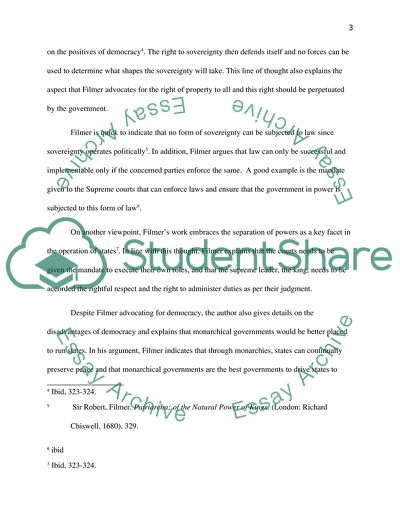Cite this document
(Analysis of Patriarcha Book by Robert Filmer Report/Review, n.d.)
Analysis of Patriarcha Book by Robert Filmer Report/Review. Retrieved from https://studentshare.org/politics/1668968-introduction-to-political-theory-essay-on-a-book
Analysis of Patriarcha Book by Robert Filmer Report/Review. Retrieved from https://studentshare.org/politics/1668968-introduction-to-political-theory-essay-on-a-book
(Analysis of Patriarcha Book by Robert Filmer Report/Review)
Analysis of Patriarcha Book by Robert Filmer Report/Review. https://studentshare.org/politics/1668968-introduction-to-political-theory-essay-on-a-book.
Analysis of Patriarcha Book by Robert Filmer Report/Review. https://studentshare.org/politics/1668968-introduction-to-political-theory-essay-on-a-book.
“Analysis of Patriarcha Book by Robert Filmer Report/Review”, n.d. https://studentshare.org/politics/1668968-introduction-to-political-theory-essay-on-a-book.


